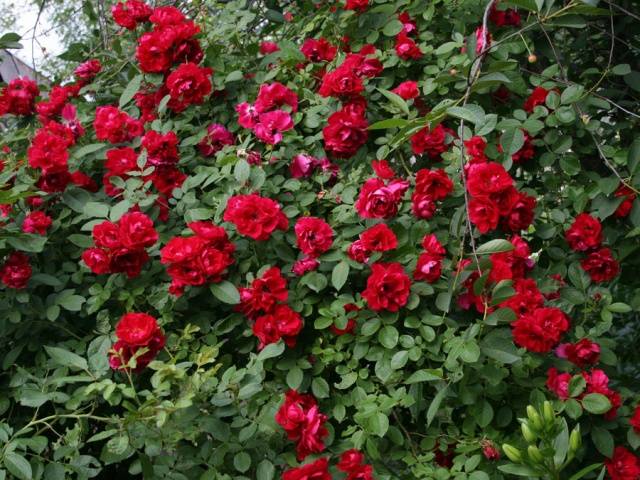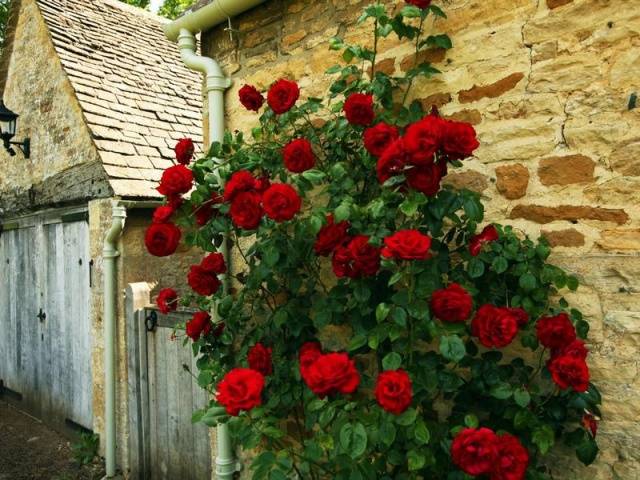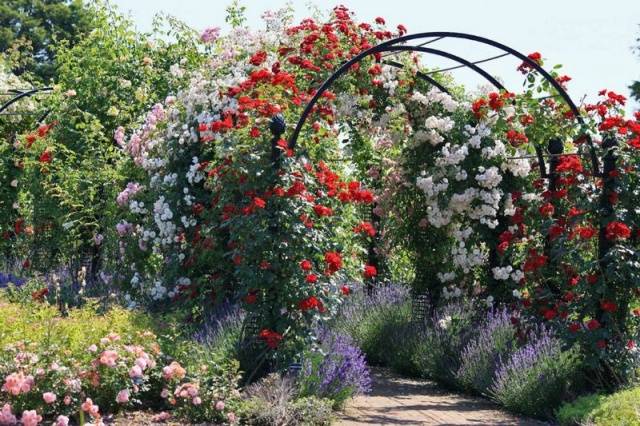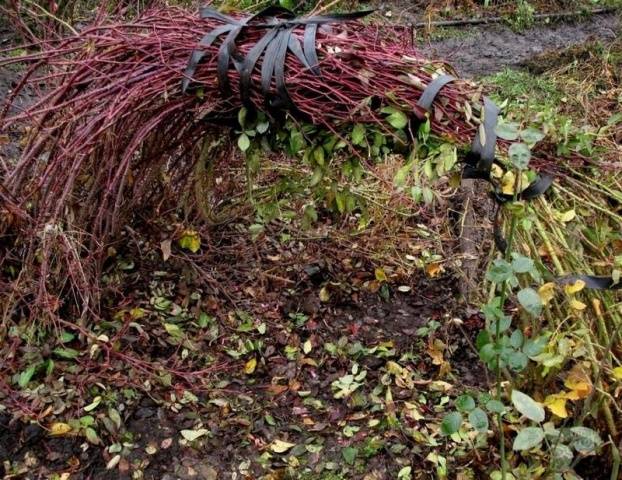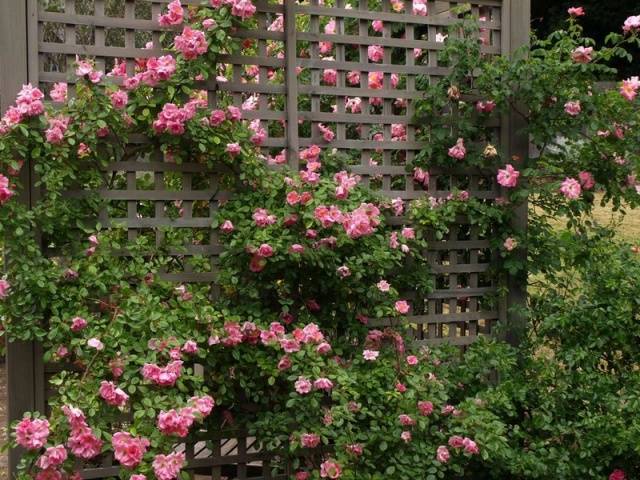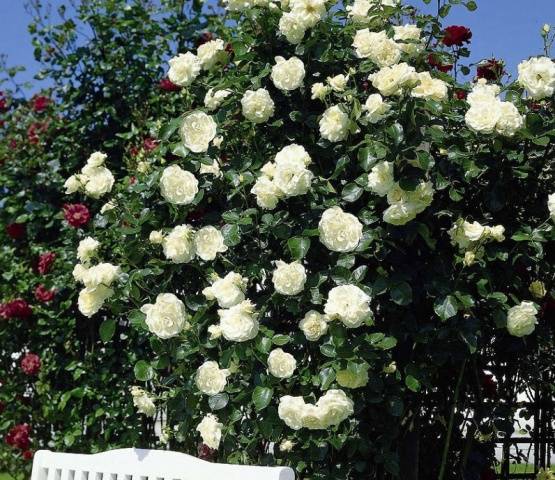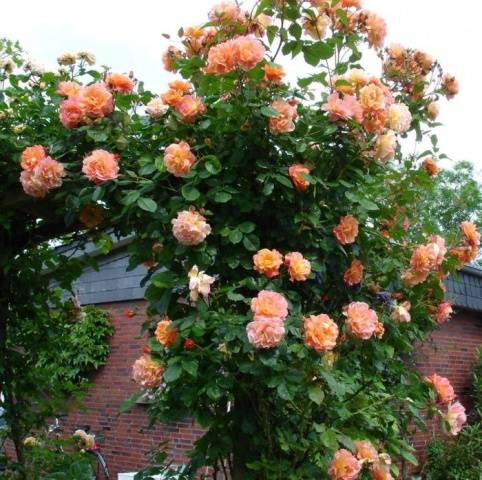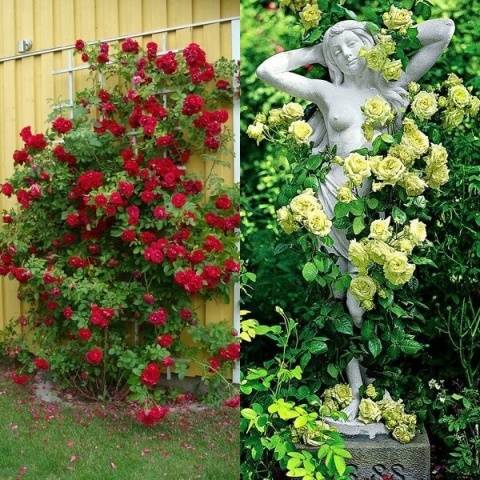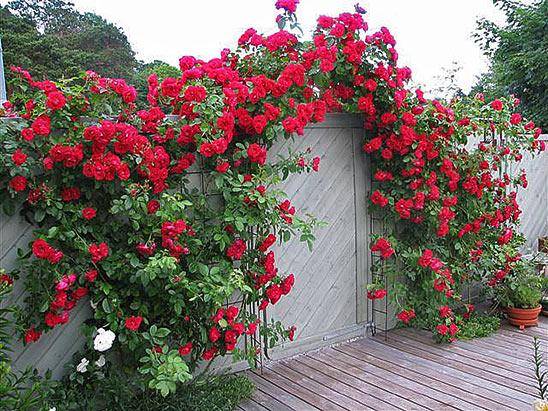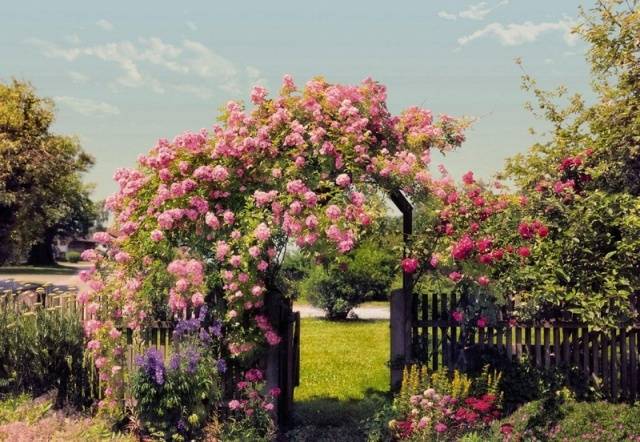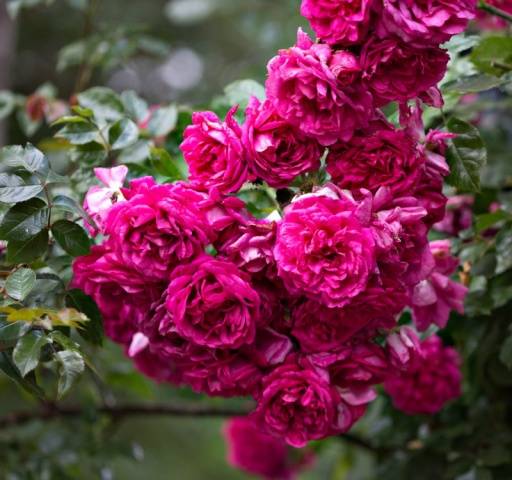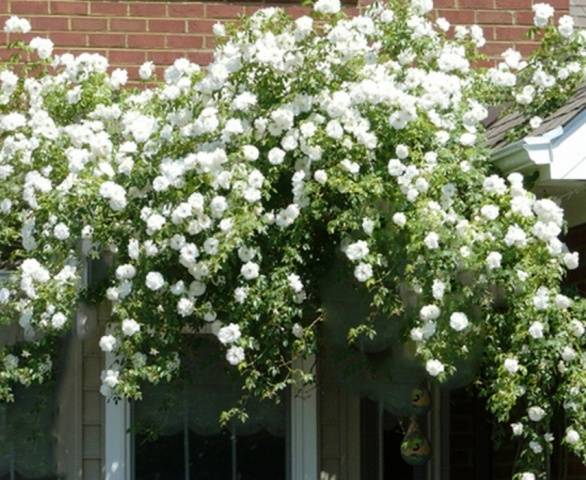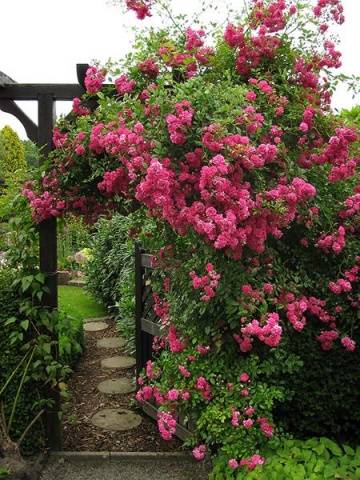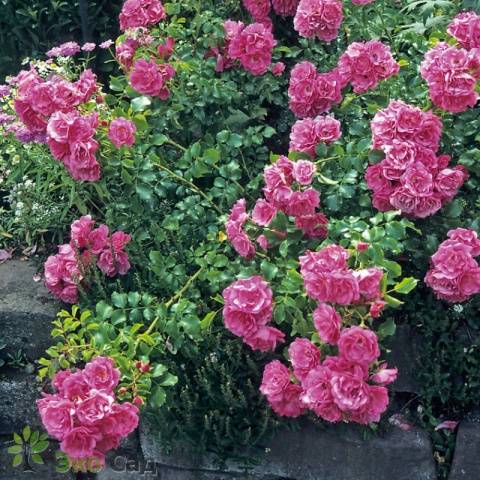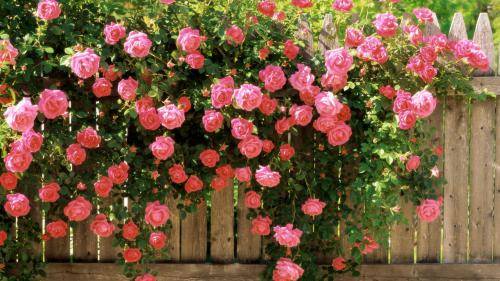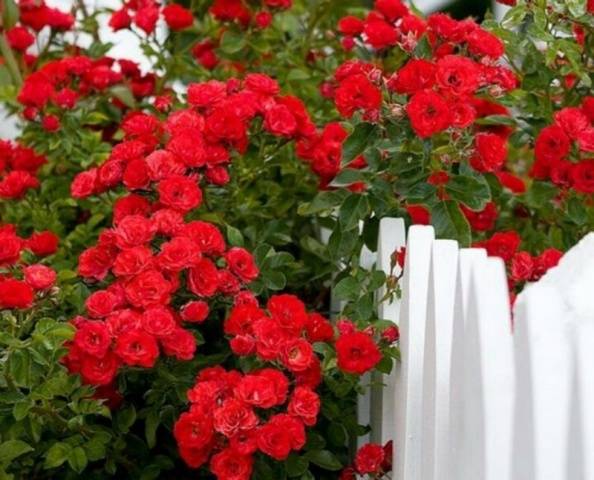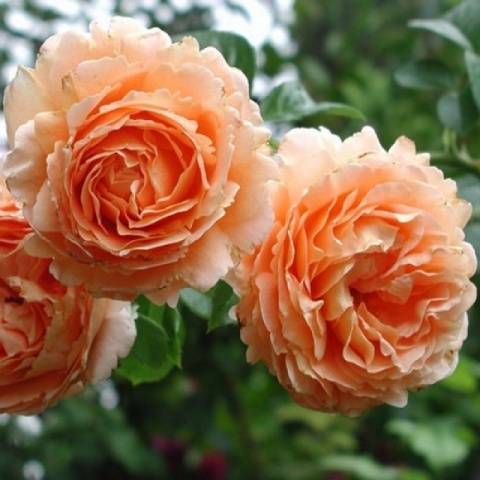Content
You can easily decorate any summer cottage with the help of climbing roses, which cover arches, hedges and walls with bright flowers and greenery. With the help of weaving flowers, you can disguise unsightly buildings, divide the site into zones, refine the wall of a house or a rickety fence.
Most varieties climbing roses perfectly tolerate frosty Russian winters, which means that they can be freely grown at dachas, which the owners visit only in the warm season. The frost resistance of decorative flowers does not mean that the bushes do not need shelter at all - much depends on the region, as well as on the variety of weaving varieties. We will talk about this in the article.
What are permanent flowering roses
In addition to frost resistance, climbing roses can boast of the constancy of their flowering. What does this mean? All varieties of these flowers are divided into two broad categories:
- growing on old shoots;
- yielding young stems annually.
Usually, flowers that grow on last year's shootsare long-flowering. The bushes of these roses are covered with flowers for more than a month, sometimes the flowering period lasts the entire summer season. In the conditions of the short Russian summer, such roses can be considered constantly blooming, because with the onset of warmth they become covered with buds and end their fragrant flowering only with the onset of cold weather.
A huge plus of these varieties is that they all tolerate cold well. In regions with relatively low winter frosts, flower bushes do not need to be covered - they winter well anyway.
But in the central, and, especially, in the northern part of the country, it is better to cover the lashes of flowers. This is done when the temperature drops below -5 degrees. First, the shoots are tied together, then laid on a bed of natural materials: dry leaves, spruce branches or wooden boards. Then a frame is built from the wire and the roses are wrapped with plastic wrap.
In the new season, the shelter is removed, and the roses bloom again all summer until the onset of autumn frosts.
Those varieties of roses that give young shoots every year are called remontant. This means that the flowering of bushes can be repeated several times in one season. For most of Russia, this huge plus of remontant varieties remains unnoticed, since in the conditions of the local climate they bloom again no earlier than September. And at this time, as a rule, it is already raining, a strong wind is blowing, and the air temperature tends to zero.
But re-flowering weaving flowers can (and should) be cut annually. This fact makes it easier to cover the bushes for the winter, because now there is no need to fold the long thorns of bushes covered with thorns. Winter hardiness of remontant roses is somewhat worse than those that bloom only once a summer. However, under reliable shelter, such varieties will tolerate even severe frosts quite tolerably.
Turns out that in the climatic zone of most of Russia, both varieties of climbing roses will be constantly blooming - for most of the season the bushes will be covered with bright flowers.
Varieties of climbing roses of constant flowering
There is another category according to which climbing roses are divided.In this case, the division is not related to how winter-hardy a particular variety is (after all, to some extent, all climbing roses can be called winter-hardy).
The principle of dividing into groups is associated with the appearance of the flowers and the length of their lashes.
Semi-twisted roses
This group consists of the most unpretentious varieties that, at first glance, resemble rose hips. Scourges of such roses are powerful and long, with many thorny thorns. These flowers just belong to the first category - those that grow on old shoots.
The trunks of half-flying roses grow stiff over time, so they must initially be placed on the supports correctly - then it will not work to correct the location of the shoots.
Vigorous bushes are covered with abundant shiny foliage. Some gardeners do not like this, but the dense greenery does not spoil the appearance of the bush at all, because the inflorescences are also painted in rather saturated colors, they are clearly visible.
But the advantages of semi-leafy varieties are undeniable:
- they perfectly tolerate even severe frosts;
- very rarely get sick;
- take root well during transplantation or reproduction;
- can be grown in any part of the garden;
- do not require complex maintenance.
"Flammentanz"
This variety is considered the most reliable for the conditions of the Russian climate; most summer cottages and country estates are decorated with such roses. The shoots of flowers are strong and long, the inflorescences themselves are also large (up to 8 cm in diameter), semi-double, saturated scarlet.
Roses bloom all season. Flowers exude a subtle, inherent aroma only to them. What a bush of such a rose looks like is shown in the photo below.
"Bobbie Jame"
This variety will appeal to lovers of exotic - the aroma of flowers resembles the smell of tropical fruits. A bush with very powerful shoots - a solid, solid support is needed for it.
But the construction of a support is far from all that a gardener should do for these flowers. The variety is quite capricious, requires constant care, the bushes will even have to be sheltered from heavy rain, since large flowers are saturated with moisture and can break off.
The rose of this variety does not tolerate frosts, you need to cover the bushes very carefully. Another nuance - beautiful, brightly colored inflorescences are very attractive to insect pests, so you will often have to use insecticides or nettle decoction.
"Laguna"
The inflorescences of this rose are very effective, they bloom with lavender-colored brushes. The texture of the petals is velvety, the flowers are lush, very decorative. The bush exudes a very strong and pleasant aroma.
The variety is resistant against diseases and pests, but it is absolutely not frost-resistant - you need to cover it every winter.
Small-flowered climbing varieties
This group includes varieties with long and very flexible whips. They grow back every season, and in the fall, the whips of such bushes are simply pruned. The length of the stems of small-flowered roses can be very different - from 2 to 16 meters. This fact must be taken into account when building a support for bushes.
The shoots are decorated with small flowers of very juicy shades, the diameter of the inflorescences usually does not exceed 5 cm.
"Super Excelsa"
The bushes of this variety are full of red roses of a very rich shade, in some way it resembles the color of fuchsia. The bushes are quite compact, they do not grow much in width. Therefore, these flowers are convenient to use to decorate trees or arches, combining them with other varieties.
The flowers are small, up to 4 cm in diameter, but very voluminous and bright. They do not like the inflorescences of the scorching rays of the sun - under its influence, the flowers simply fade. Therefore, it is better to plant bushes in partial shade.
The variety is quite unpretentious, tolerates heat and cold well, and can withstand pests and diseases.
"Super Dorothy"
Flowers of this variety are capable of blooming up to autumn frosts, while even in autumn they will be just as bright and fragrant.
The downside is considered to be a rather late blooming of roses, the buds bloom only at the end of spring.Shoots can grow up to three meters in length, the width of one bush is about a meter.
Basically, the inflorescences are painted in a bright crimson hue, but some varieties of the variety may have flowers of other tones.
Large-flowered climbing varieties
These are truly the most spectacular varieties of climbing roses - the inflorescences are very large, double, with a strong sweet aroma. The only drawback of such varieties can be considered their poor resistance to low temperatures - large-flowered roses will not withstand severe frosts, they must be covered.
Santana
A distinctive feature of the variety is the deep red color of the inflorescences, which is so bright that it does not fade even under the scorching rays of the sun. The first flowers reach a diameter of 10 cm, over time, the inflorescences become smaller, but, nevertheless, remain rather large and decorative.
The rose is very unpretentious, it can grow on soil with any composition, it gets used to different climatic conditions.
"Polka"
These are delicate flowers, painted in an apricot or soft coral shade. They are also very large, collected in inflorescences, up to 30 cm in diameter. The bush is not very tall - the length of the lashes can reach only two meters. Such a rose is suitable for small hedges and small arches.
Polka bushes bloom constantly - all summer new buds appear on the shoots. The bush does not get sick, it tolerates heat well, but frost is contraindicated for flowers, therefore, the bushes must be insulated for the winter. The flower is shown in the photo below.
Outcomes
Winter-hardy varieties of climbing and blooming roses all summer are not a myth, they really exist. But in the harsh climate of Russia all the advantages of such colors are not so bright, "blurry". Early autumn forces the bushes to shed their buds and prepare for wintering, and very rare species of plants can withstand frosts of up to 30-35 degrees, and decorative fragile roses are definitely not among them.
therefore growing climbing varieties on your site, you need to be prepared for the fact that you will have to build a winter shelter for them. Otherwise, the precious bush can be lost.
